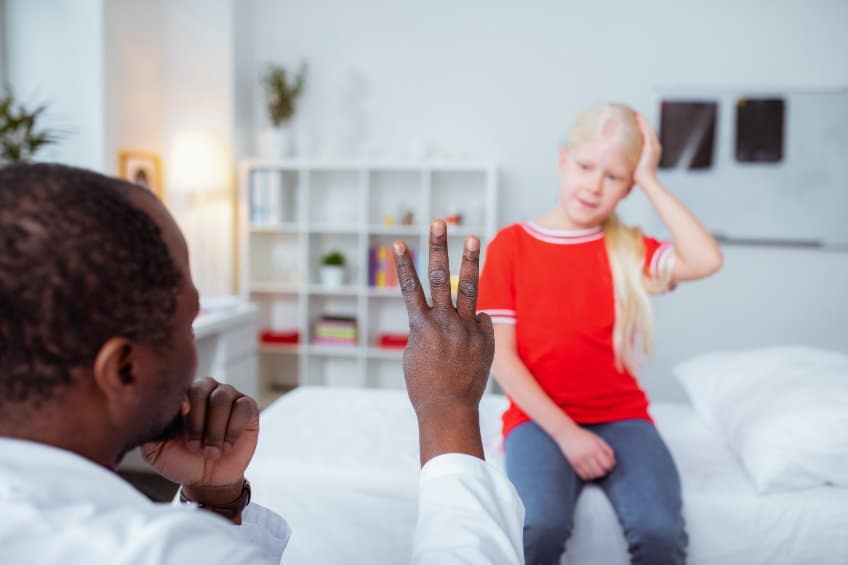By John Salak –
As many as two million children up to the age of 17 suffer brain concussions every year, WebMD.com reports. The vast majority are mild, to the relief of parents and medical professionals.
Nonetheless, the rate of injuries may be growing, according to the Centers for Disease Control and Prevention. More than 12 percent of children 12 to 17 have had concussions. That’s concerning for a few reasons, the CDC adds. First off, children are more susceptible to significant injuries from concussions because their brains are still developing. Another area of concern is treatment. Some reports indicate that the ability of doctors to diagnose and treat children and adolescents is still a bit of a crap shoot.
“What is striking is there is still a lot we don’t understand,” Dr. Christina L. Master, co-director of the Minds Matter concussion program at Children’s Hospital of Philadelphia, told WebMD.com.
A joint study by various Canadian universities has now added a unique and somewhat counterintuitive insight to the convalescent process for the young.
While it’s recommended to ban screen time for concussion sufferers, the Canadian research team reports some screen time may speed recovery. The researchers arrived at their conclusions by comparing self-reported data on screen time from more than 700 children ages 8-16 in the first 7-10 days following an injury against symptoms reported by them and their caregivers over the following six months.
They found that children’s concussion symptoms cleared up fastest when engaged in some screen time.
“We’ve been calling this the ‘Goldilocks’ group because it appears that spending too little or too much time on screens isn’t ideal for concussion recovery,” explained Molly Cairncross, an assistant professor at Simon Fraser University. “Our findings show that the common recommendation to avoid smartphones, computers and televisions as much as possible may not be what’s best for kids.”
The study was part of a larger concussion project called Advancing Concussion Assessment in Pediatrics (A-CAP). The data came from participants aged 8-16 who had suffered either a concussion or an orthopedic injury, such as a sprained ankle or broken arm and sought care at one of five emergency departments in Canada. The purpose of including children who had orthopedic injuries was to compare their recoveries with the group who had concussions.
Patients in the concussion group generally had relatively worse symptoms than their counterparts with orthopedic injuries. Within the concussion group, it was not simply a matter of symptoms worsening with more screen time. Children with minimal screen time recovered more slowly, too.
“Kids use smartphones and computers to stay connected with peers, so complete removal of those screens could lead to feelings of disconnection, loneliness and not having social support,” Cairncross added. “Those things are likely to harm kids’ mental health and recovery take longer.”
The study admittedly differed from an earlier U.S. study. That investigation found that screen time slowed recovery, measuring screen use only in the first 48 hours and symptoms for only ten days.
The longer timeline led to another interesting finding.
“The amount of time spent in front of screens during the early recovery period made little difference to long-term health outcomes,” reported Noah Silverberg, an associate professor at the University of British Columbia’s psychology department. “After 30 days, children who suffered a concussion or another type of injury reported similar symptoms, regardless of their early screen use.”
The researchers also observed that screen time seemed to have less bearing on symptoms than other factors such as the patient’s sex, age, sleep habits, physical activity or pre-existing symptoms.
“Screen time didn’t make a lot of difference relative to several other factors that we know can affect concussion recovery,” added Keith Yeates, a psychology professor at the University of Calgary. “Encouraging concussion patients to sleep well and gradually engage in light physical activity will likely do lots more for their recovery than keeping them off their smartphones.”
The bottom line is that blanket restrictions on screen time for children and adolescents might not help. Moderation is not only the key; it may support recovery.












